Podcast with Swami Shantatmanandaji Maharaj premieres on March 1st, 2025!
Handling Hurt
By Smt. Saswati Ghosh
We stand on two ends of the spectrum wide,
You carry your sorrow, quietly inside.
I let mine erupt, like a storm in the sky,
You smile through the tears, while I let mine fly.
Your silence is poetry, deep and strong,
My voice - a siren warning those who do me wrong.
You endure the weight with words unspoken,
I shatter the chains before I am broken.
Yet neither is wrong, for pain finds its way,
Through whispers or echoes, someone has to pay
Your calm is a river, my storm is the sea,
Both flowing toward where our souls long to be.
For life is a journey of battles unseen,
Of scars that we carry, both loud and serene.
Both of us look for what we think right,
Through the shadows of day and the trials of night.
In your quiet pain, and my fierce fight,
We both are struggling to find the light
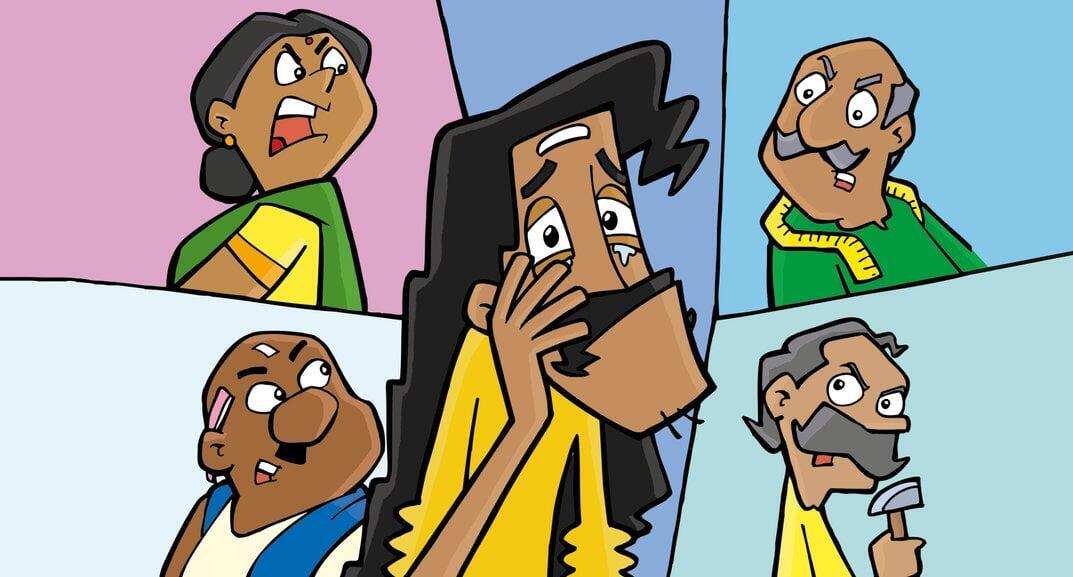
Difficult People
By Smt. Reena Sinha
We’ve all come across them, sometime or the other,
For some, it’s a one-time hassle, for others, a daily bother.
Difficult people come in all ages and forms,
There’re no clues to help spot them, nor any norms.
How to deal with them, no one can tell,
But they sure make our lives a living hell.
A domineering parent who wouldn’t let go,
A cantankerous boss with a massive ego,
A nagging wife breathing down your neck,
A headstrong child who doesn’t care a heck,
An opportunistic colleague, a troublesome friend,
A suspicious neighbour, always ready to offend,
I’ve had my share of them too, as all of us do,
Let me share here some of my experiences with you.
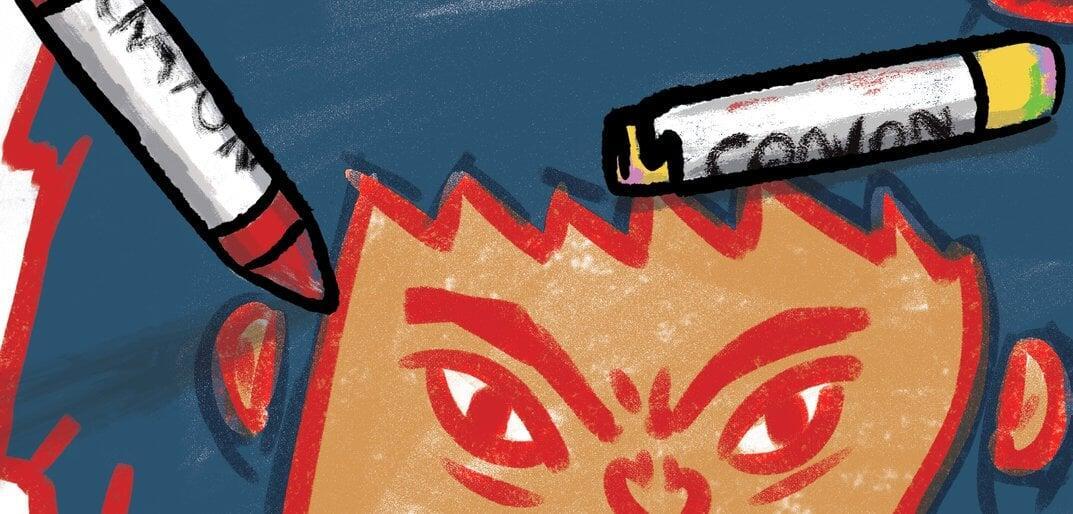
A student of mine he was, a little boy of eight,
An innocent face, but a heart full of hate
For his mother, his teachers, his school and studies,
And, will you believe it, even his buddies?
His teachers complained, his mother was ashamed,
He day-dreamed in class, whether Science or Arts,
His notebooks were empty, his homework undone,
Negatives he had so many, positives not one.
He was often marched down to the Principal’s office,
He was often punished, at times given toffees,
But kindness or sternness, nothing seemed to work,
He’d stare hard at you and stand like a rock.
I prayed hard to God to show him the light,
Years later, suddenly I met him on a flight.

“Hello, young man,” said I, “What a difficult one you were!”
“So I was,” said he, “but then, did you care?”
I was taken aback by his bitter stance,
What had I done to get such a response?
“I was difficult,” he said, “but so were you,
What you did to me, I did unto you.
You never gave me a chance, you always complained,
You never allowed me to express or explain.”
His outburst on me had a sobering effect,
It forced me to sit down and reflect.
Had I known all this, years ago,
I’d handle him differently, without much ado.

My thoughts went back to my former boss,
Who never ever agreed with my views or thoughts.
Undercurrents, bitterness, tension in the air,
Anger, hatred, for she was being unfair,
Fear, that she may cause me some harm,
I always lived in a state of alarm.
Would things have been different, had I understood
That I was the cause of the difficulty too?
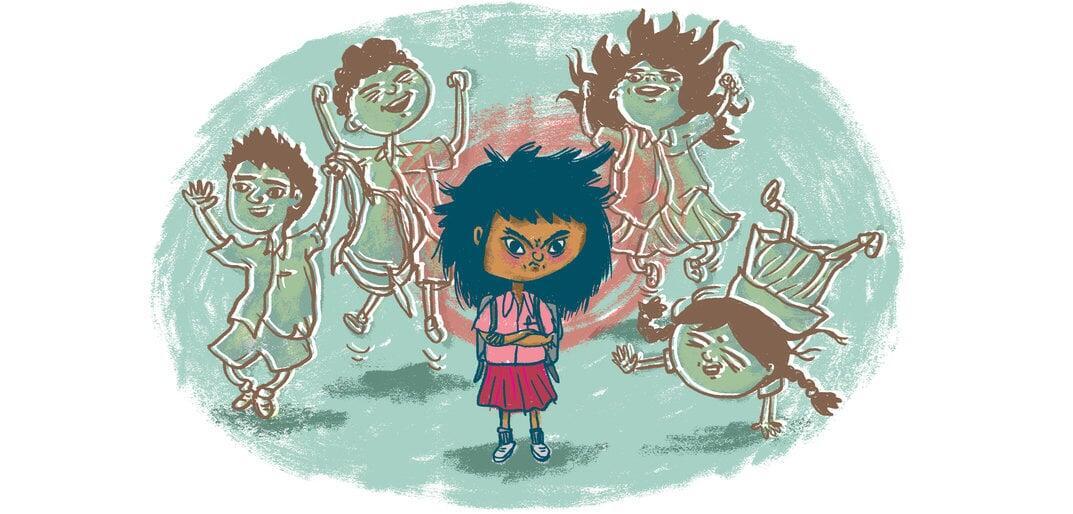
My pupil and boss have taught me a lesson,
While judging people, let us not hasten.
Difficult people do not love being so,
More often than not, they just do not know!
Or perhaps, just cannot let go.
Sometimes it’s their egos that come in the way,
At other times, it’s ours that blocks the way.

Here’s what I learnt about dealing with them.
Peep into their minds and try to understand
What makes them act the way they do,
Their ego, a whim, some truth about you?
Then deal with them as the situation demands,
Calmness for anger, obedience for commands,
Compliance for stubbornness, truth for falsehood,
Humility for arrogance, will do a lot of good.
It always pays to bow down for a while,
To help them realize, it wasn’t worth their while.
Be a parent to a mother, who acts like a child,
Be a child to a daughter, who acts very wild,
A boss can be handled with gentle persuasion,
A friend, with a calm and forgiving disposition,
Psychological handling while dealing with them,
Can turn them around and make them your friends.
A positive attitude will also help,
Then negatives will become roads to success!
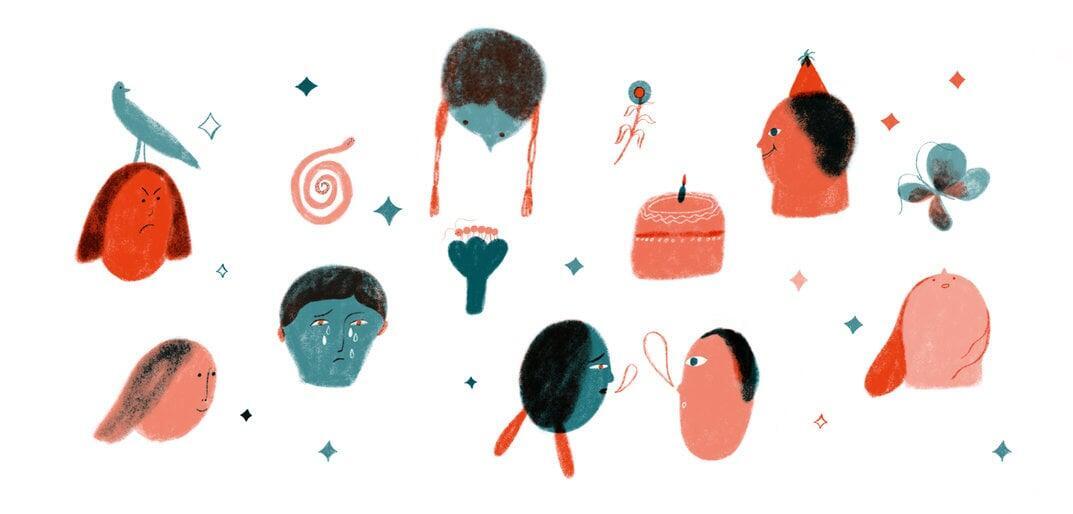
Let us consider yet another fact,
We haven’t perhaps thought of that:
It’s strange but true that we don’t realize
We are often those difficult people whom we so criticize.
A wonderful father may be a horrendous boss,
An excellent teacher may be at a loss
When it comes to dealing with her children dear,
So, she fills their lives with misery and tears.
It’s therefore odd to put people in slots,
Say who is difficult and who is not.
We are all difficult and easy at times,
Like our lives that are filled with both rain and sunshine.
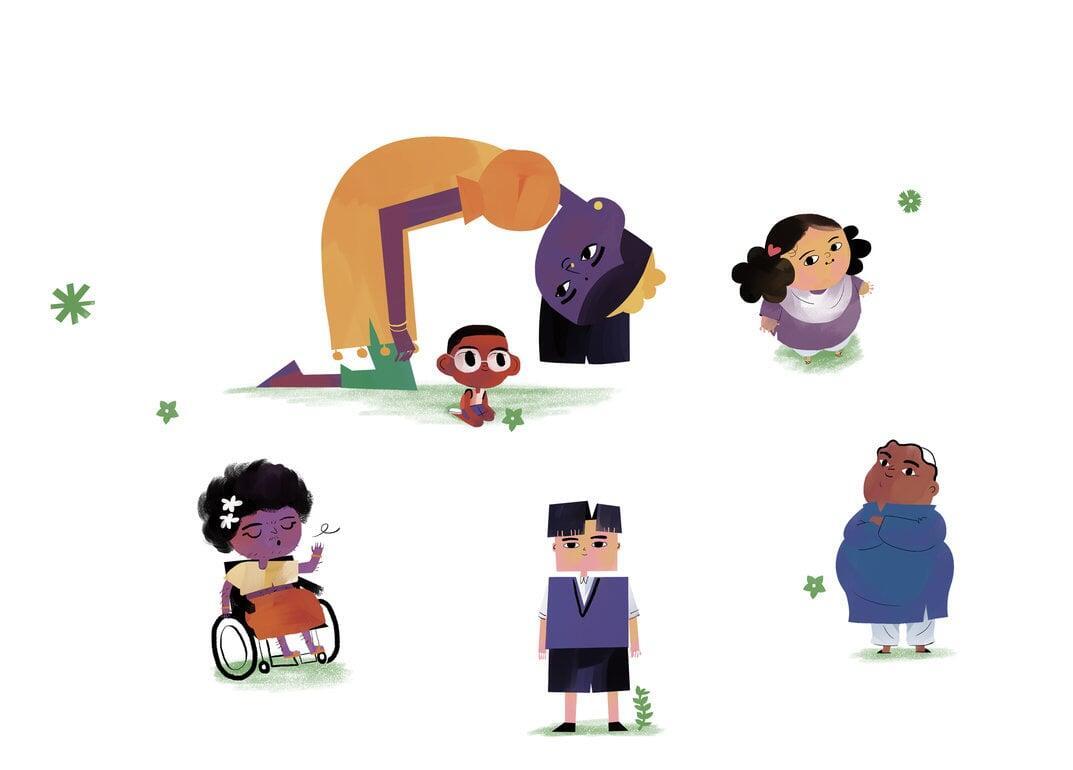
So, what’s to be done when a difficult one
Walks into my life, removes peace for strife?
Apply understanding, patience, tact and thought,
Try my level best and leave the rest to God.
Difficult people or people misunderstood?
It’s all the same, it’s just the way you look!
THE END
L.I.S.T.E.N
By Dr. Neera Pant
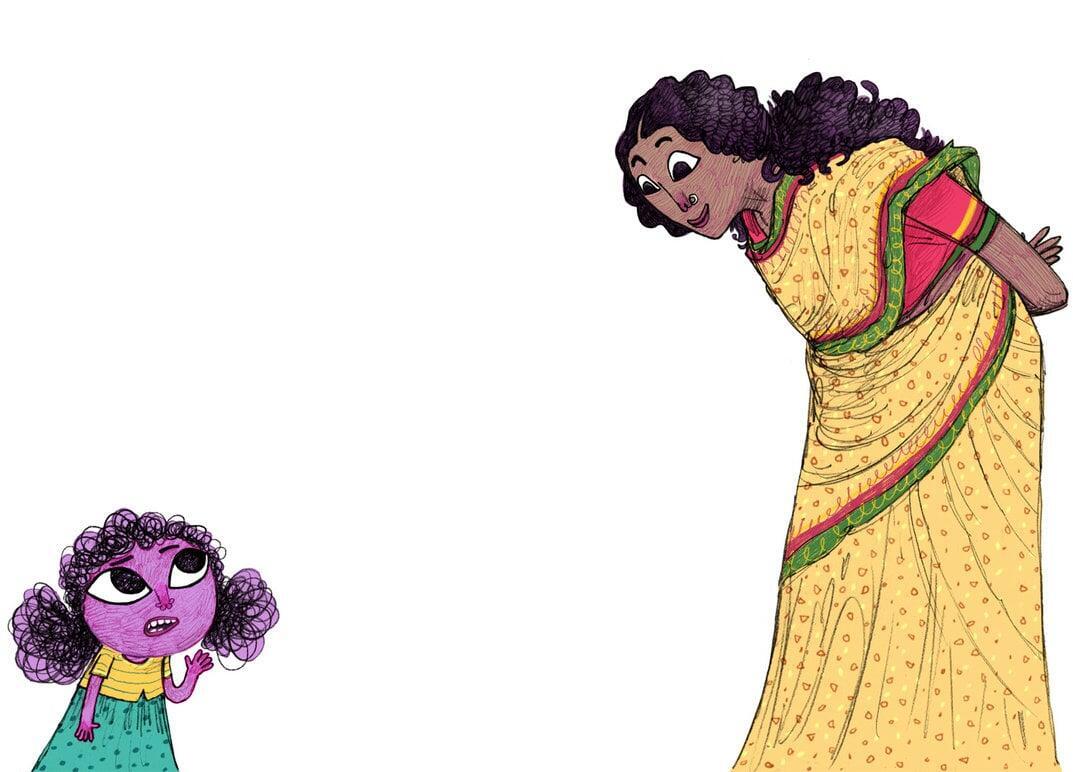
Listening is an essential yet often overlooked skill that plays a significant role in building stronger relationships. Let’s look at the word L.I.S.T.E.N. as an acronym. This provides us with a tool to be an active listener.
L - Look at the eyes of the listener while speaking
Maintain eye contact
I - Inquire with short questions
Is what is spoken clear?
S - Summarise
Tell the speaker briefly what you have understood of the conversation so far
T - Take part in the interaction
Using non verbal cues like nodding your head, etc.
E - Empathy
Listening with feeling
N - Non-judgemental listening
As a listener you do not respond with advice to a problem unless asked
This is the major difference between listening and active listening.
Weger et al. (2014) defines active listening as focusing on the speaker’s message, offering feedback to show understanding, and avoiding quick judgments or evaluations.
Research highlights that active listening improves empathy, reduces misunderstandings, and boosts problem-solving skills. It creates an atmosphere of trust and respect, which fosters more meaningful interactions. Feeling heard enhances self-worth and reduces stress. In the workplace, strong listening skills are linked to better teamwork, leadership, and conflict resolution. Developing active listening skills requires practice. By becoming better listeners, individuals can strengthen relationships and navigate challenges more effectively.
Play a quiz on differing perspectives!
Swami Vivekananda and Purposeful Inconsistency
Attribution
- Tall lady talking to a small girl by Rajiv Eipe, for KİTAP KURDU LOLİ written by Fatma Günbey under a CC BY 4.0 license on StoryWeaver. Read, create and translate stories for free on www.storyweaver.org.in
- different children by Aindri C, for Your Body Is Yours written by Yamini Vijayan, published by Pratham Books (© Pratham Books, 2020) under a CC BY 4.0 license on StoryWeaver. Read, create and translate stories for free on www.storyweaver.org.in
- Sad man and people by Angie & Upesh, for Annual Haircut Day written by Rohini Nilekani, published by Pratham Books (© Pratham Books, 2007) under a CC BY 4.0 license on StoryWeaver. Read, create and translate stories for free on www.storyweaver.org.in
- An angry girl's eyes by Vinayak Varma, for Angry Akku written by Vinayak Varma, supported by Oracle, published by Pratham Books (© Pratham Books, 2017) under a CC BY 4.0 license on StoryWeaver. Read, create and translate stories for free on www.storyweaver.org.in
- Teacher scolding a student by Priya Kuriyan, for It's All the Cat's Fault! written by Anushka Ravishankar, published by StoryWeaver (© StoryWeaver, 2015) under a CC BY 4.0 license on StoryWeaver. Read, create and translate stories for free on www.storyweaver.org.in
- Angry woman by Rijuta Ghate, for Naughty or Not (Tell me now series) written by Madhav Chavan, published by Pratham Books (© Pratham Books, 2004) under a CC BY 4.0 license on StoryWeaver. Read, create and translate stories for free on www.storyweaver.org.in
- An angry girl in the midst of other children playing by Vinayak Varma, for Angry Akku written by Vinayak Varma, supported by Oracle, published by Pratham Books (© Pratham Books, 2017) under a CC BY 4.0 license on StoryWeaver. Read, create and translate stories for free on www.storyweaver.org.in
- Girl crying to her mother by Jesse Breytenbach , for Abel and his sister's doll written by Eyobi Kitaw, published by African Storybook Initiative (© African Storybook Initiative, 2017) under a CC BY 4.0 license on StoryWeaver. Read, create and translate stories for free on www.storyweaver.org.in
- Diverse people by Gitanjali Iyer, for How I Feel written by Varsha Seshan, published by Pratham Books (© Pratham Books, 2020) under a CC BY 4.0 license on StoryWeaver. Read, create and translate stories for free on www.storyweaver.org.in
- different sizes and shapes of human bodies by Aindri C, for Your Body Is Yours written by Yamini Vijayan, published by Pratham Books (© Pratham Books, 2020) under a CC BY 4.0 license on StoryWeaver. Read, create and translate stories for free on www.storyweaver.org.in

